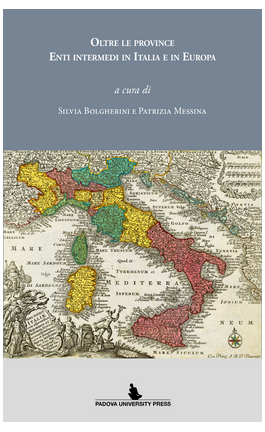PRIN 2011-2013
New forms of local governance as a tool for strategic territorial development. A comparative study on six European regions
Ministry-funded national 2009 PRIN project
Scientific publications linked to this project:
 How is local government changing in Europe? How are the challenges coming from the globalization of the economy and European multilevel governance being addressed in different European countries? In recent years, the economic crisis and spending review policies have been prompting national governments to promote institutional reforms that aim, on the one hand, to simplify intermediate levels of government such as the provinces and, on the other, to enhance the role of local governments in aggregate form. This is a series of reforms designed to profoundly change the institutional structure of territorial government, starting with the municipal level. But it is also a window of opportunity for local governments to be able to develop greater capacity for political-administrative management, both in their respective countries and at the community level. The research presented in this volume compares six European regions (Veneto, Tuscany, Apulia, Sicily, Brandenburg, and Andalusia) and seeks to identify, downstream of the individual specificities and the different solutions undertaken, any common trends, any similar governance tools, and actions adopted in the face of the same kind of challenges. But it also wants to propose, through a comparative look at intermediate entities, food for thought for scholars, local administrators, and practitioners in the area, suggesting an innovative key of interpretation related to the concept of institutional sustainability
How is local government changing in Europe? How are the challenges coming from the globalization of the economy and European multilevel governance being addressed in different European countries? In recent years, the economic crisis and spending review policies have been prompting national governments to promote institutional reforms that aim, on the one hand, to simplify intermediate levels of government such as the provinces and, on the other, to enhance the role of local governments in aggregate form. This is a series of reforms designed to profoundly change the institutional structure of territorial government, starting with the municipal level. But it is also a window of opportunity for local governments to be able to develop greater capacity for political-administrative management, both in their respective countries and at the community level. The research presented in this volume compares six European regions (Veneto, Tuscany, Apulia, Sicily, Brandenburg, and Andalusia) and seeks to identify, downstream of the individual specificities and the different solutions undertaken, any common trends, any similar governance tools, and actions adopted in the face of the same kind of challenges. But it also wants to propose, through a comparative look at intermediate entities, food for thought for scholars, local administrators, and practitioners in the area, suggesting an innovative key of interpretation related to the concept of institutional sustainability
Local governments in Europe are changing profoundly. A new wave of reforms, accelerated by the global crisis, has invested local governments in their powers, bodies, and sometimes even their boundaries. Above all, however, it has laid the groundwork for a transformation in the intergovernmental relations between the center and the periphery. This volume gives an account of this evolution by analyzing, from a comparative perspective, the recent reforms of local governments that have taken place in three major European democracies -Italy, Spain, and Germany- with a special focus on the role of so-called intermediate bodies (provinces and unions of municipalities). The study aims to offer readers an interpretative key to these reforms, placing them in the broader reflection on the concept of institutional sustainability and pointing out their first effects, as well as possible bottlenecks.


